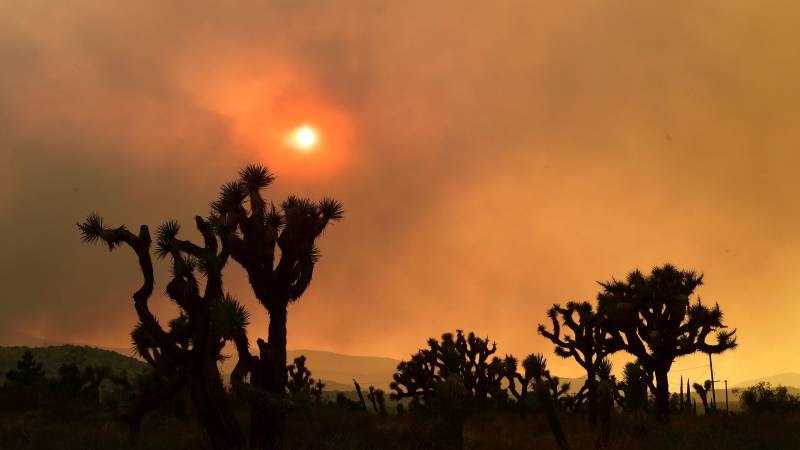“Thirty by 2030 is the mandate,” Newsom said. “California, as the fifth-largest economy in the world, needs to flex its muscles, needs to assert itself, and to advance that cause, not only as it relates to its global impacts but hopefully jump-start similar efforts in other states across this country.”
State Senate Republican leader Shannon Grove of Bakersfield, in the state’s vast Central Valley farming region, called the order overly broad and said it could increase the cost of land and might have other unknown impacts on farming and grazing.
The order “will have potentially catastrophic implications to housing and the state’s ability to supply the world’s food,” Grove said in a statement.
This is the second major climate change directive from the governor since a string of massive wildfires broke out in mid-August.
Last month, Newsom directed state regulators to come up with rules to ban sales of new gas-powered passenger cars and trucks by 2035. He said that plan will reduce greenhouse gas emissions by 35%.
The automobile announcement was criticized by the White House. The U.S. Environmental Protection Agency’s chief questioned the legality of the move.
Newsom said this latest effort would build on the state’s legacy of protecting open space, the environment and biodiversity.
While more than half of California land is owned by the state or federal government, the U.S. Geological Survey estimates that only 22% of lands is currently considered protected.
The state thinks it could reach the 30% goal through further conservation efforts on public lands, according to the California Natural Resources Agency. But it wants to get private landowners and the federal government to improve conservation to optimize the role trees, soils and wetlands play in absorbing carbon, said Wade Crowfoot, secretary of natural resources.
“When someone thinks about taking action on climate change they think about putting solar on the rooftop or turning off the lights or buying an electric vehicle,” Crowfoot said. ”Today the governor elevated nature-based solutions to both combat climate change and build our resilience to these climate impacts.”
The state said it doesn’t anticipate acquiring costly new lands or requiring significant funding.
